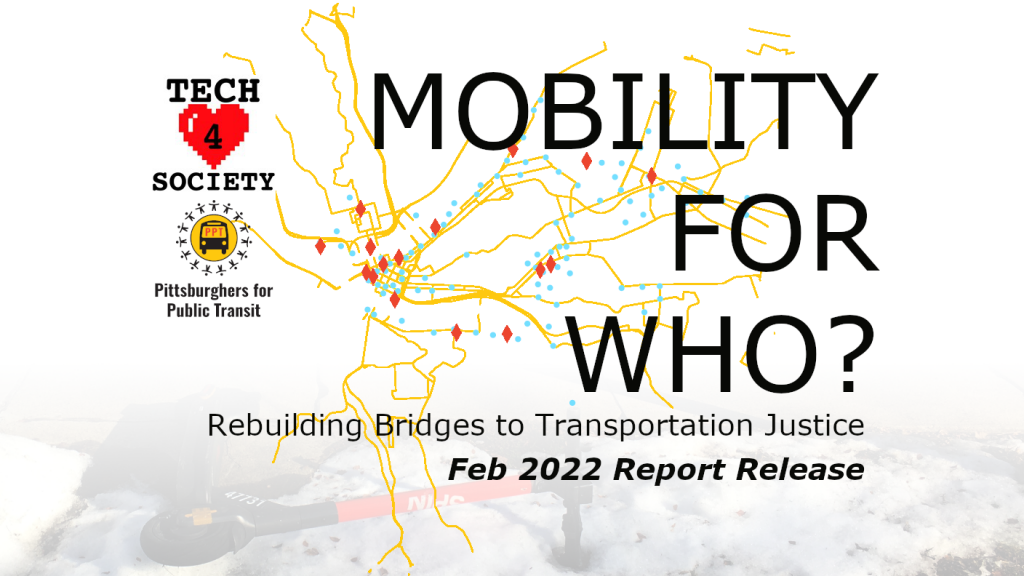
Scooters? Sidewalk Robots? Autonomous Vehicles? New Report and Panel Discussion Examines Who Is Left Behind In City’s Rush to Adopt Micro Mobility & Tech-Centered Development
“Mobility for Who? Rebuilding Bridges to Transportation Justice” is a new report co-authored by Tech4Society and Pittsburghers for Public Transit. The report’s authors and community advocates doing work for disability justice and affordable housing presented the findings at a webinar in mid-February 2022. The event and the report both highlight the critical issues that come from tech-focused transportation policy, and uplift opportunities for the new Mayoral Administration to create access for all – namely through supporting public transit, affordable housing, and accessible pedestrian infrastructure as included in the Pittsburgh 100 Days Transit Platform.
The Mobility for Who? panelists presented on the new report’s findings that examine the previous Mayoral Administration’s decision to pour taxpayer funds and time into private mobility technology while failing to prioritize core infrastructure needs such as sidewalks, bus shelters, and even roads and bridges.
Bonnie Fan, a PhD student at CMU and researcher with CMU’s Tech4Society said, “We found that the rush to embrace the technology sector has driven gentrification of legacy neighborhoods and displacement of residents to transit-poor areas, both exacerbated by an acute lack of affordable housing.”
Transit accessibility is an equity issue. SPIN scooters, autonomous vehicles, sidewalk delivery robots, and other technologies have all been touted by Pittsburgh leaders as increasing mobility access for residents. However, these technologies are often inaccessible to many who need transportation most: senior citizens, the disabled, youth, families, low-income people, and the unbanked.
The report and panel insist that now is the time to ask whose mobility is being prioritized, who is being left behind and how can these investments also prioritize Pittsburgh residents, economic mobility, racial and gender equity, affordable housing, and improved air quality to fight the climate crisis rather than funding interests of large tech companies?